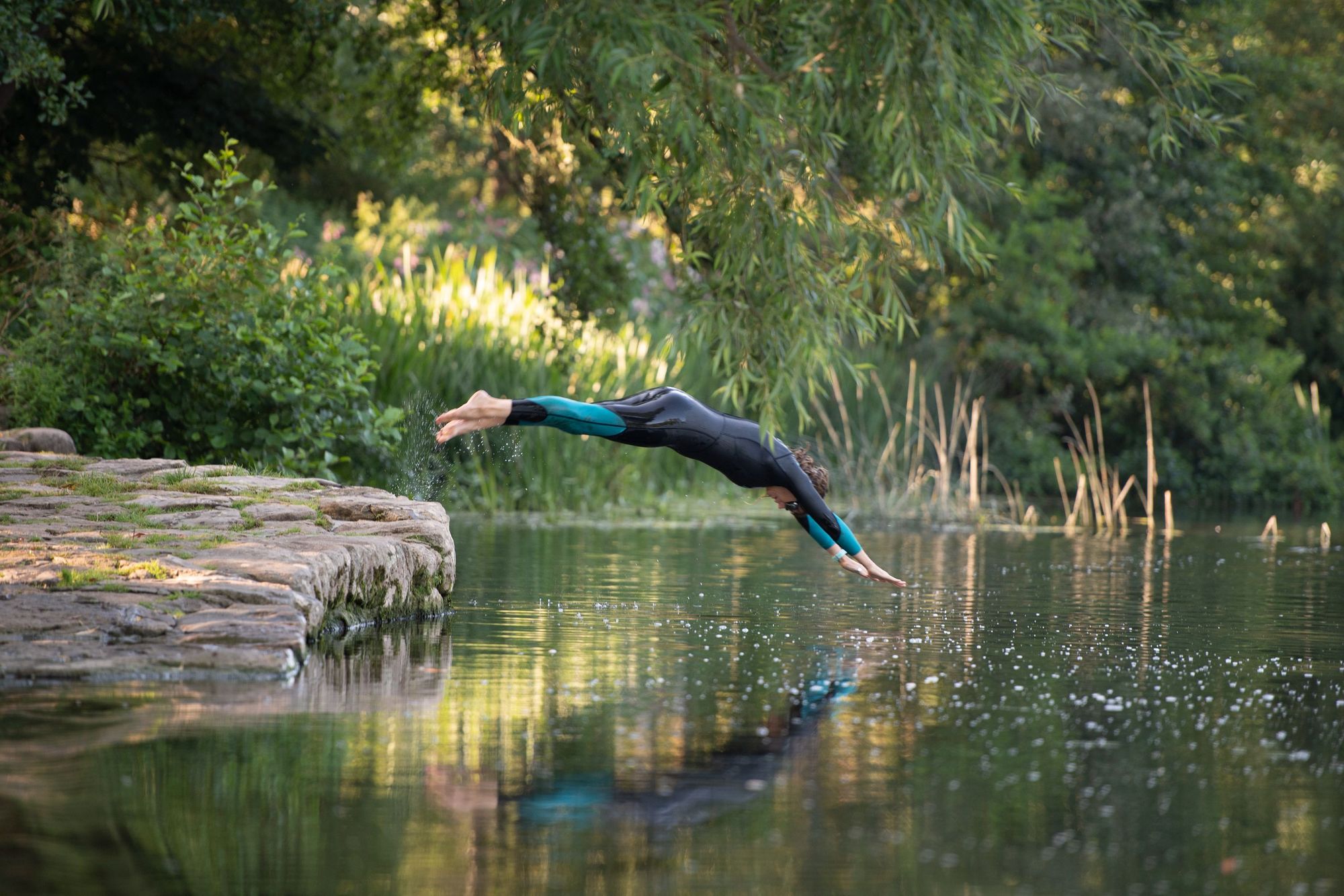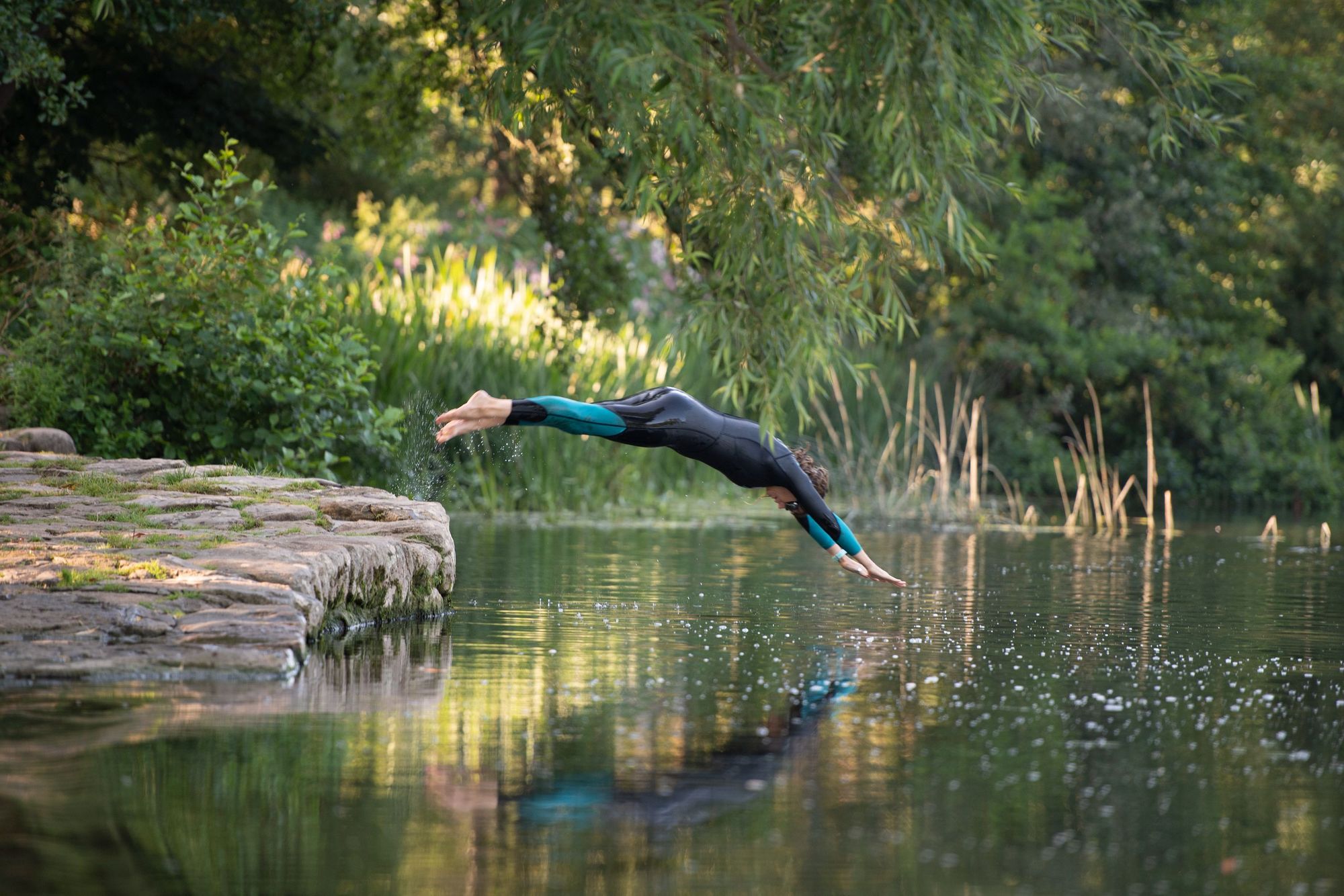
Jo Bradshaw is one mountain away from completing the Seven Summits, a challenge to climb the highest mountain on every continent. Her two most recent climbs were Denali (6194m) in North America and Mount Vinson (4892m) in Antarctica. Once she ascends Carstensz Pyramid in West Papua - currently closed due to civil unrest - she’ll join some of the world’s most elite adventurers in completing the challenge.
It might surprise you to learn that Jo has been completing these climbs while simultaneously navigating the transition to menopause. This is a time in a woman’s life which is stigmatised, misunderstood and until recently, was widely referred to as “the last taboo”. But although some women find perimenopause symptoms debilitating, that doesn’t mean they should stop adventuring. In fact, perhaps during midlife women need adventure more than ever.
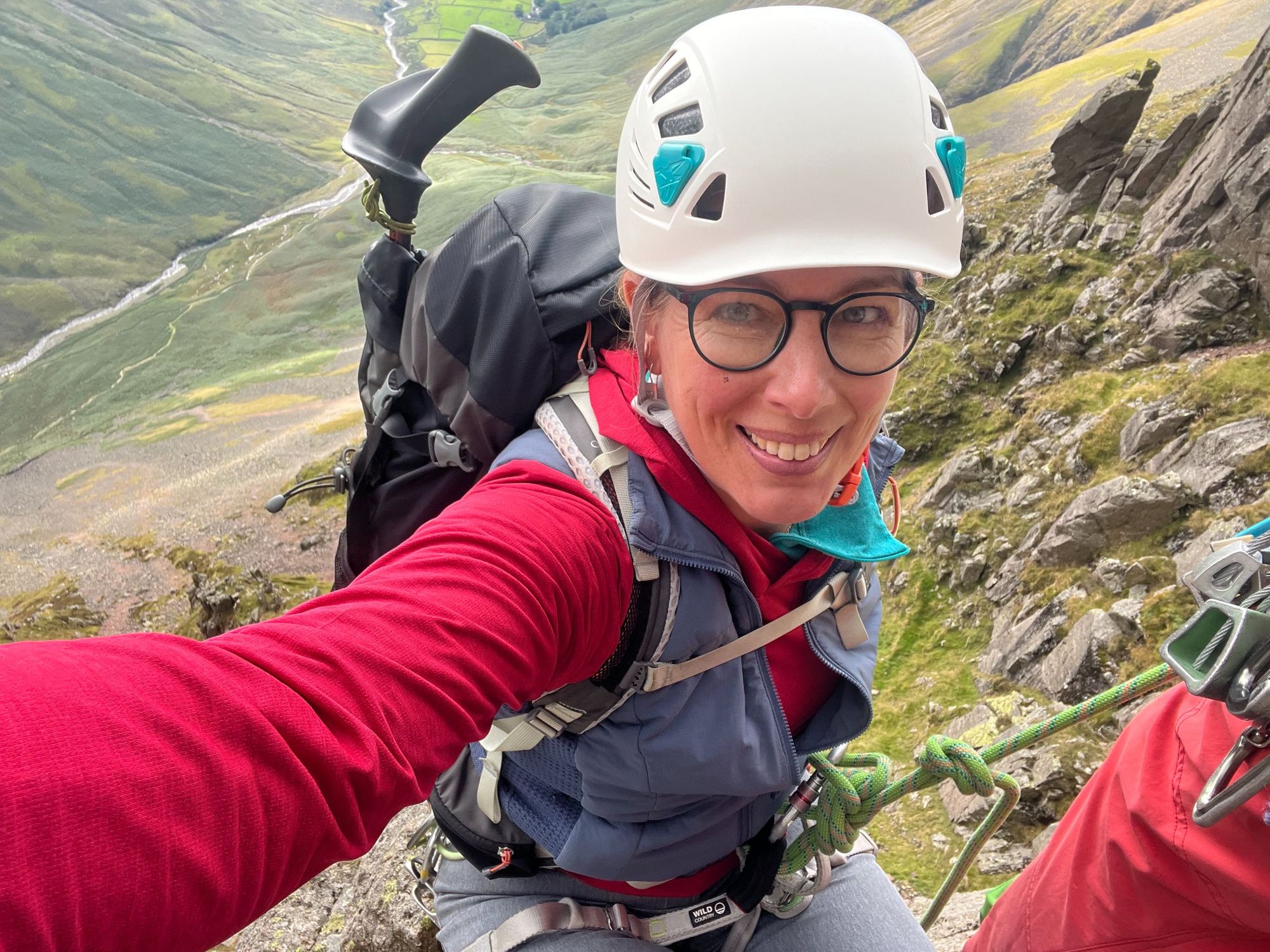
We spoke to Dr Naomi Potter, founder of the Menopause Care clinic and the co-author of Davina MacCall’s bestseller Menopausing, to get a better understanding of the perimenopause and menopause. We also spoke to adventurer Jo Bradshaw and Kate Rew, author of The Outdoor Swimmers' Handbook, about how growing older has changed their relationship with their own bodies and to adventure (not always, as we are led to believe, for the worst).
Menopause isn’t just an issue that affects women - it also affects the people around them. So if you’re a man reading this, we urge you to continue. The world needs more men like the one who asked Jo, “okay, so as a husband, a father, a brother, an uncle, a colleague, a friend, everything that I am as a man, what can I do to support the women in my life?”
Perimenopause and Menopause Explained
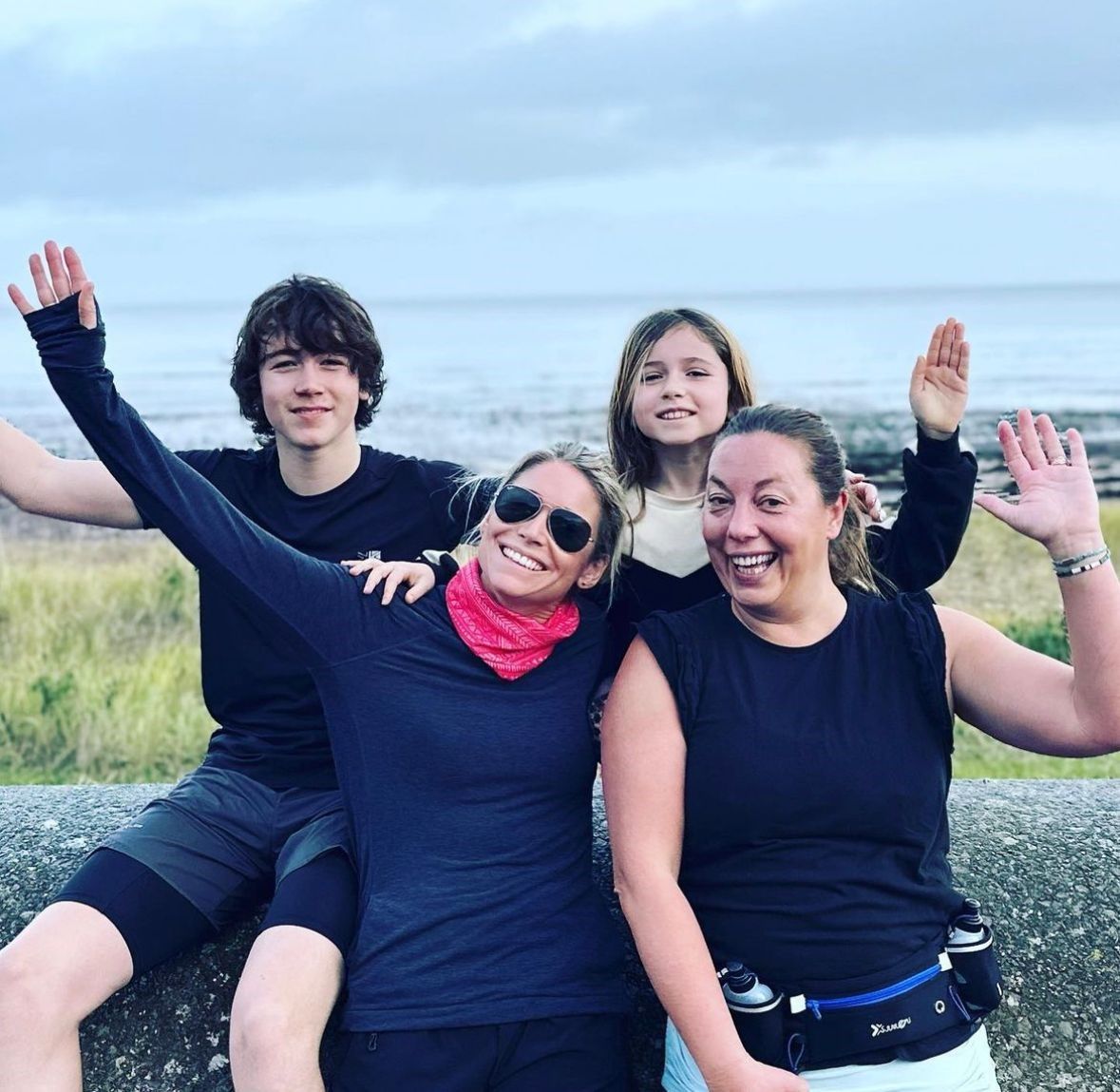
So what exactly is menopause? You’ve probably heard the stereotypes about it - that it gives women hot flushes, and makes them grumpy. You’ve also likely heard some of the pejorative language used to describe women who’ve passed through it: dried up, over the hill, on the shelf. But it’s an inevitable transition that around half the world’s population will experience, so it’s worth looking beyond the stereotypes to the experience itself.
“As ovaries get older, they stop working as well as they did when you’re younger,” Dr Naomi Potter explains. “Initially, during perimenopause, your hormone levels fluctuate, and this is what can give some women symptoms. You can get fluctuating levels of oestrogen; progesterone comes and goes in a more haphazard way. But as time goes on and you enter menopause, the hormones tend to even out at a lower level, when you are without your oestrogen and progesterone. Your testosterone levels also drop.
“There are over 60 different symptoms of menopause and perimenopause. The stereotypical ones are hot flushes and night sweats, then periods stopping. But mental health symptoms can be very debilitating, and also challenging to diagnose because they're often considered to be part of anxiety or depression.
We’re using the word ‘symptom’, but that doesn’t make menopause a disease to be cured or something to be fixed
“There are all sorts of symptoms because your body has oestrogen receptors everywhere. Your organ systems rely on oestrogen; when you lose it, or when it fluctuates, that organ system can be affected. So you can get hair loss, dry eyes, tinnitus, dry mouth, palpitations, bowel habit change, urinary symptoms and skin changes. Oestrogen and testosterone help with muscle maintenance, fat distribution and being supple, so if your joints are stiff and sore, you're far less likely to pursue outdoor and athletic pursuits.”
Before you begin to panic, it’s worth remembering that not everyone experiences adverse effects during the menopause. Naomi estimates that around 80% of women experience menopausal symptoms, and 30% of those women suffer with debilitating issues. However, she does admit that, working at a menopause clinic, she’s likely to encounter those on the more severe end of the spectrum.
We’re using the word ‘symptom’, but that doesn’t make menopause a disease to be cured or something to be fixed. Instead, think of it as one of many transitions that a woman goes through - such as puberty and sometimes motherhood. It’s a transition, and like any other transition, there are ways to help manage it should it prove difficult.
“Firstly, identification of symptoms, and acknowledgement. Once you know what's going on, it makes your life so much easier,” Naomi explains. “And lifestyle changes. Exercise, eating well, cutting out caffeine and sugar loads all make a really big difference during the perimenopause. There is evidence that being outside, in the fresh air and the sunshine - we all know about vitamin D - is supposed to help balance you. It helps with your circadian rhythms, and boosts serotonin.
“HRT is the first mainstay, the gold standard. If you've got menopause or perimenopause symptoms and you can take HRT, that would be your first port of call. Essentially you're replacing those hormones, and your body can function in the same way that it used to.”
Sharp Crashes and Gentle Happenings
Every woman's menopause transition is highly individual: while Jo experienced life-affecting symptoms during the perimenopause, Kate barely noticed the transition. But neither of them realised what was happening immediately. This is partly, Jo believes, because she hadn’t read up on menopause. But it’s also because women’s lives are not just biological - they also have careers to focus on, people to care for, and adventures to plan.
“It’s very difficult to know what’s about your hormones and what's going on in the rest of your life,” Kate says. “I think the midlife is when so many things are going on at once for so many of us. Like many midlife women, I have children, but I also have ageing parents, my own needs, and professional, financial and pension needs, and they're all pulling in different directions, like I’m on a stretching rack. So, actually, when I went through it the perimenopause was the least of my worries.”
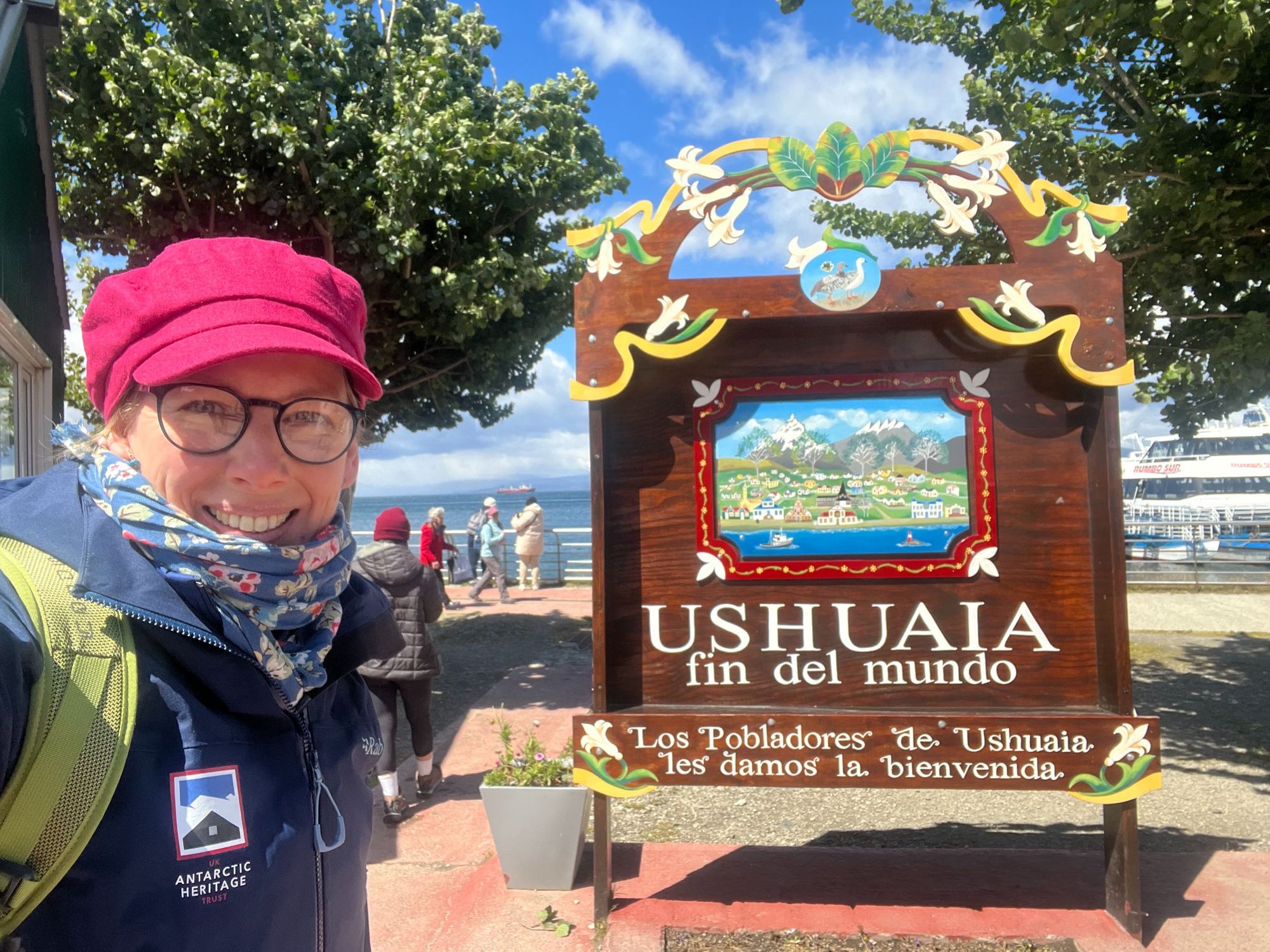
Initially, the same was true for Jo. “It all coincided with losing my dad in 2017. I think that's when it all kicked off and I thought I was grieving because I was quite depressed,” she says. “But that feeling never went away and I started putting on weight. I thought it was because I was just simply eating too much, or not exercising. I was having word memory blocks. I didn't have brain fog, or memory loss as some people do, but I'd forget words. So I'd be teaching DofE and I'd forget the word “compass”, for example.
“Then Covid happened. You can attribute symptoms to all sorts of different things, but I think if I'd sat and written it all down, which I've encouraged friends to do now, I’d have recognised what was happening because I also had joint pain. When I got out of bed in the morning, I couldn't put my feet flat on the floor, and it took a long time for that to ease off every morning. The fatigue for me was fairly epic and I'd crash out in the afternoon. During Covid that was fine, because I was a Tesco delivery driver. So I knew I had to power on through my three days at 10 hours, plus my evening shift, but the other four days, I could literally sleep.
“Anxiety was quite a big thing for me as well. I remember trying to organise a three-day trip with a friend and he said, “you’re really overthinking this and you're really making it complicated and that's not you”. I just didn't join the dots. And so the main piece of advice I would give to anybody is reading up on it - not to scaremonger people but so that you're prepared for what the symptoms could be, because everybody's different. Everybody has different symptoms, everybody starts at different ages and you either crash into it or it gently happens.”
Jo finally had a lightbulb moment when someone recommended a book on menopause. She sought advice from her GP, who recommended hormone replacement therapy (HRT). It has, she says, given her “herself back,” and has enabled her to better manage the symptoms she was having.
Everybody has different symptoms, everybody starts at different ages and you either crash into it or it gently happens
Kate’s experience of the menopause has been very different to Jo’s. Aside from hot flushes, she didn’t have any physical effects during the perimenopause. But she did experience a transition in a different way; one that felt societal, rather than internal.
“At some point, I realised that I'd lost a status and visibility in society that I never really knew that I had, or that I was benefiting from. I've never traded on the whole triumvirate of fuckability, femininity, fertility, and yet at some point I didn't have it anymore. I didn't realise that it had probably made people stop and listen to me in a way they weren’t going to anymore,” she says.
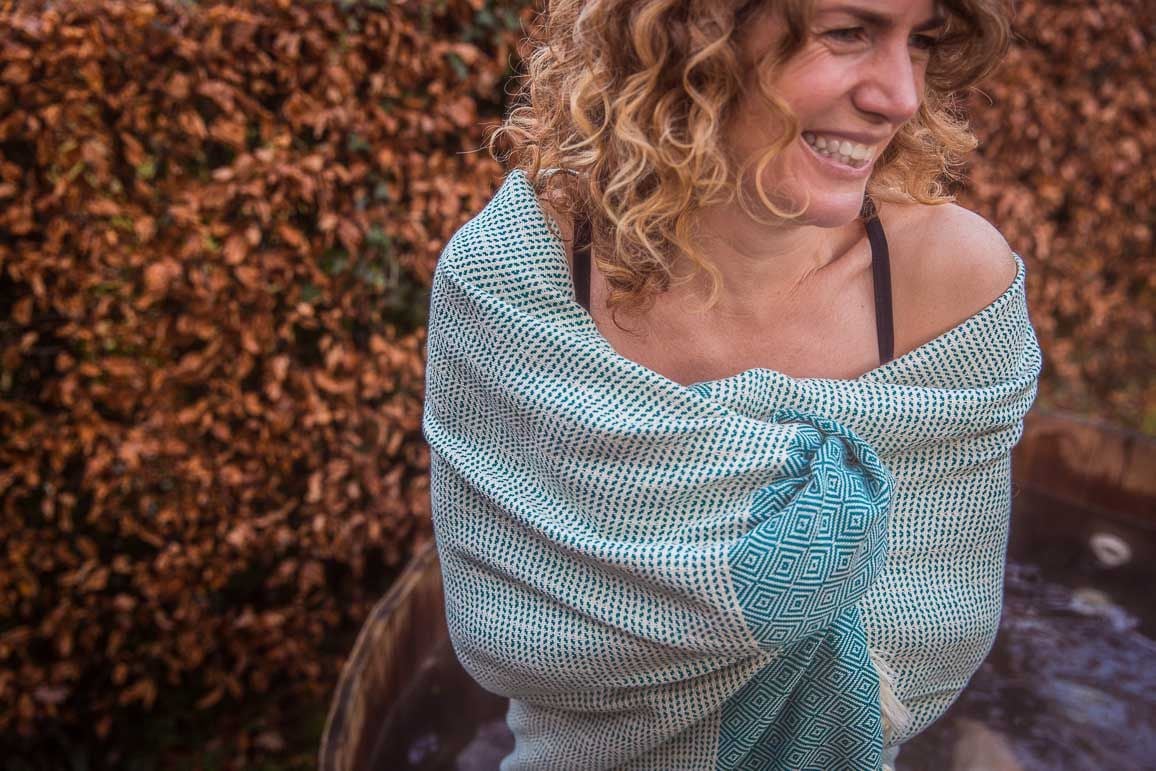
“I think there is still a stigma to the word menopause and I think it might be healthier if we were just talking about older women in the way that we talk about older men. Menopause identifies us very strongly with our biology: we were young and fertile and now we're not. And I don't think somehow that that's really the key problem about being 50. For me, the key problem about menopause is becoming a bit redundant in the eyes of the patriarchy.”
Unsurprisingly, Naomi has noticed that some of her patients tend to lose confidence when they go through the menopause.
I've never traded on the whole triumvirate of fuckability, femininity, fertility, and yet at some point I didn't have it anymore
“It can be a vicious cycle. You lose confidence because your body's not performing in the way you'd like it to, and that makes you lose more confidence and it can spiral,” she says.
Her advice - seek treatment if you need it, adjust your expectations, and continue to do the things that make you happy.
“If you used to go on a 30 mile hike, just try going on a five or 10 mile one instead of not going at all. Menopause doesn't have to stop you from doing anything you would have done previously. Life doesn't end at 50 - you can carry on adventuring, well into the next few decades,” she says.
Your One Precious Life
What can we do to change the narrative? For a start, as with any paradigm shift, positive role models are vital. Until recently, Kate had been running The Outdoor Swimming Society very much from the back.
“Now I feel like I've got a different duty, which is to put my old lady face right in front of people. I have the platform to be heard and be a woman that other people can see,” she says.
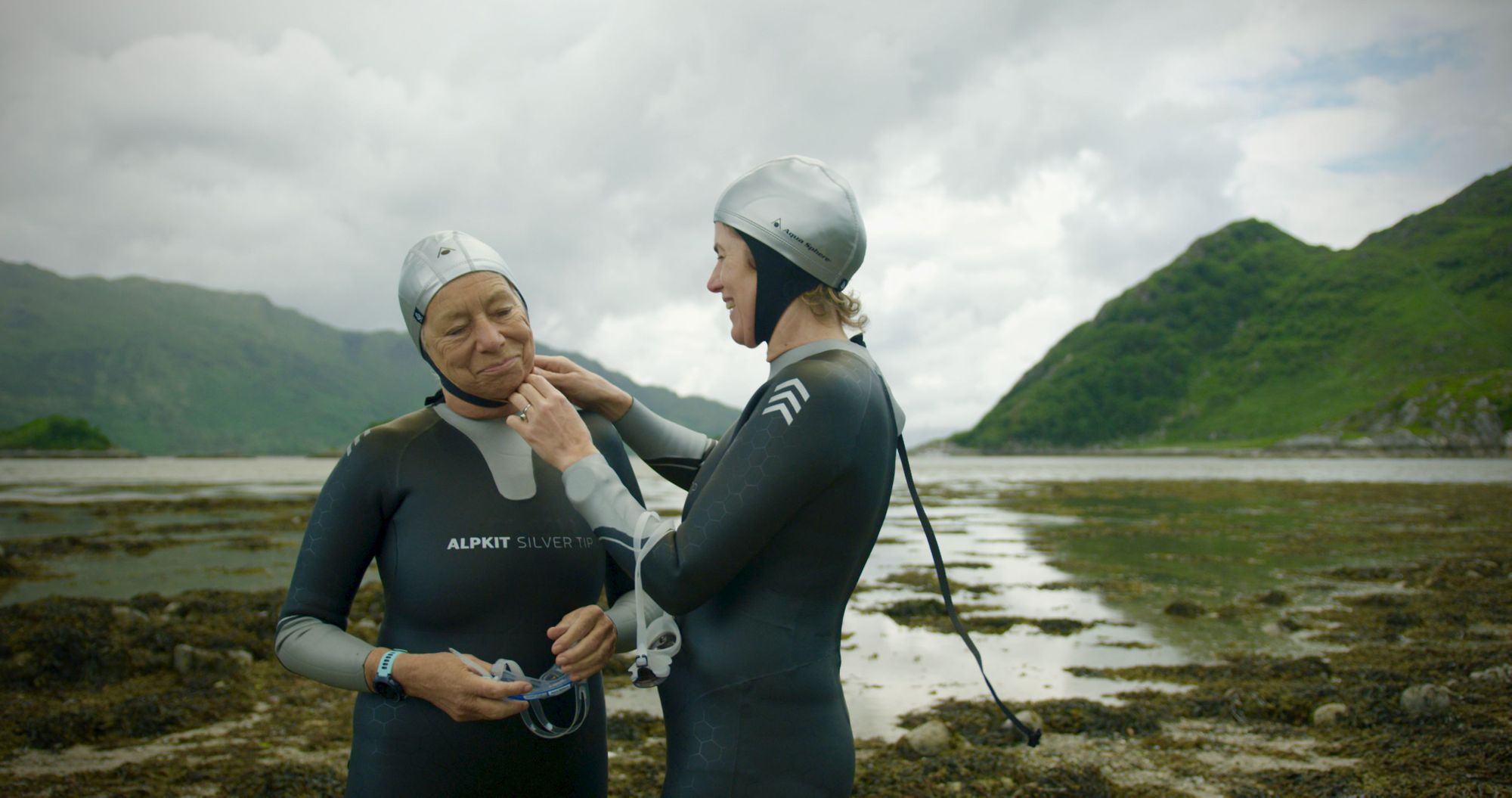
This desire to become more visible manifested itself through making the short film, Chasing the Sublime, which Kate made with her longtime swim companion Kari Furre, as they swim across a sea loch in the Knoydart Peninsula.
“I wanted to say that my adventures are valid, my adventures as a 50 year old woman who isn’t driven by this whole “being the fastest, being the coldest” - going to an unknown place to swim a long way is an adventure,” Kate says.
She cites Karri, who’s 20 years older than her, as a role model.
“She's incredible, just does whatever she wants to do, and she's unconstrained, like most of us are, by society’s expectations for her,” she says. “When she was 60, she decided she would run a midnight marathon in Norway. And then when she was 70, she decided she would do 70 minutes of butterfly and taught herself the stroke. At some point she also decided to swim the length of Windermere. She's just been a fantastic inspiration for me - that you don’t have to stick to anyone else's prescription of what you're now capable of.”
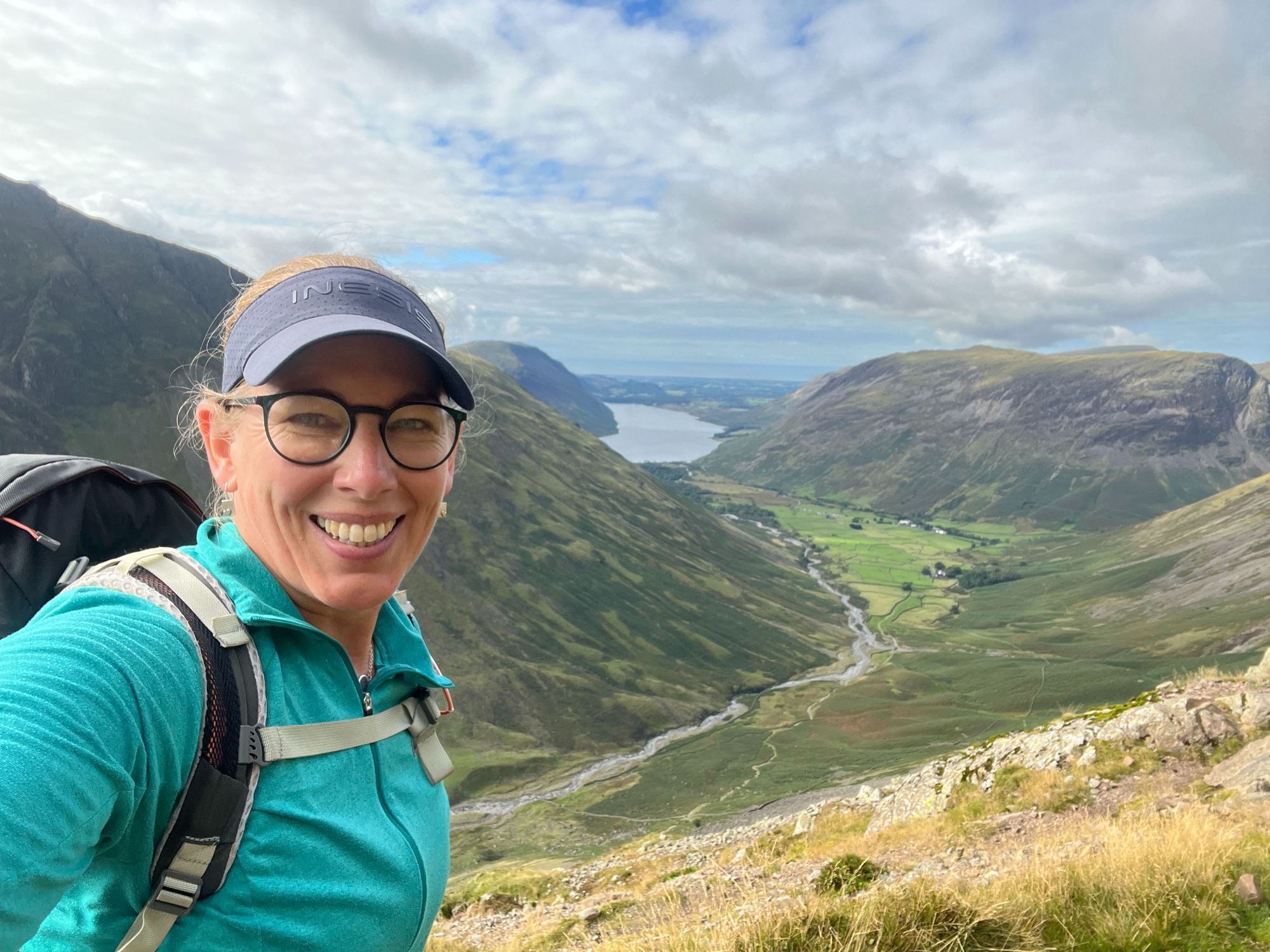
Jo’s been working to reframe her experience of the menopause too.
“I'm very much into reframing things in life that are difficult. And not always looking for the reasons because sometimes things just happen,” she says. “I don't want my menopause to be a pity party, and I'd like other women to realise that there is life through the perimenopause and the menopause. We change, you know? From our teens to our 30s we're very different people and we don't think of that as a bad thing. But when we get to menopause, that midlife bit, we think “oh my God, what's happening to me?” It’s about giving ourselves a bit of a break.”
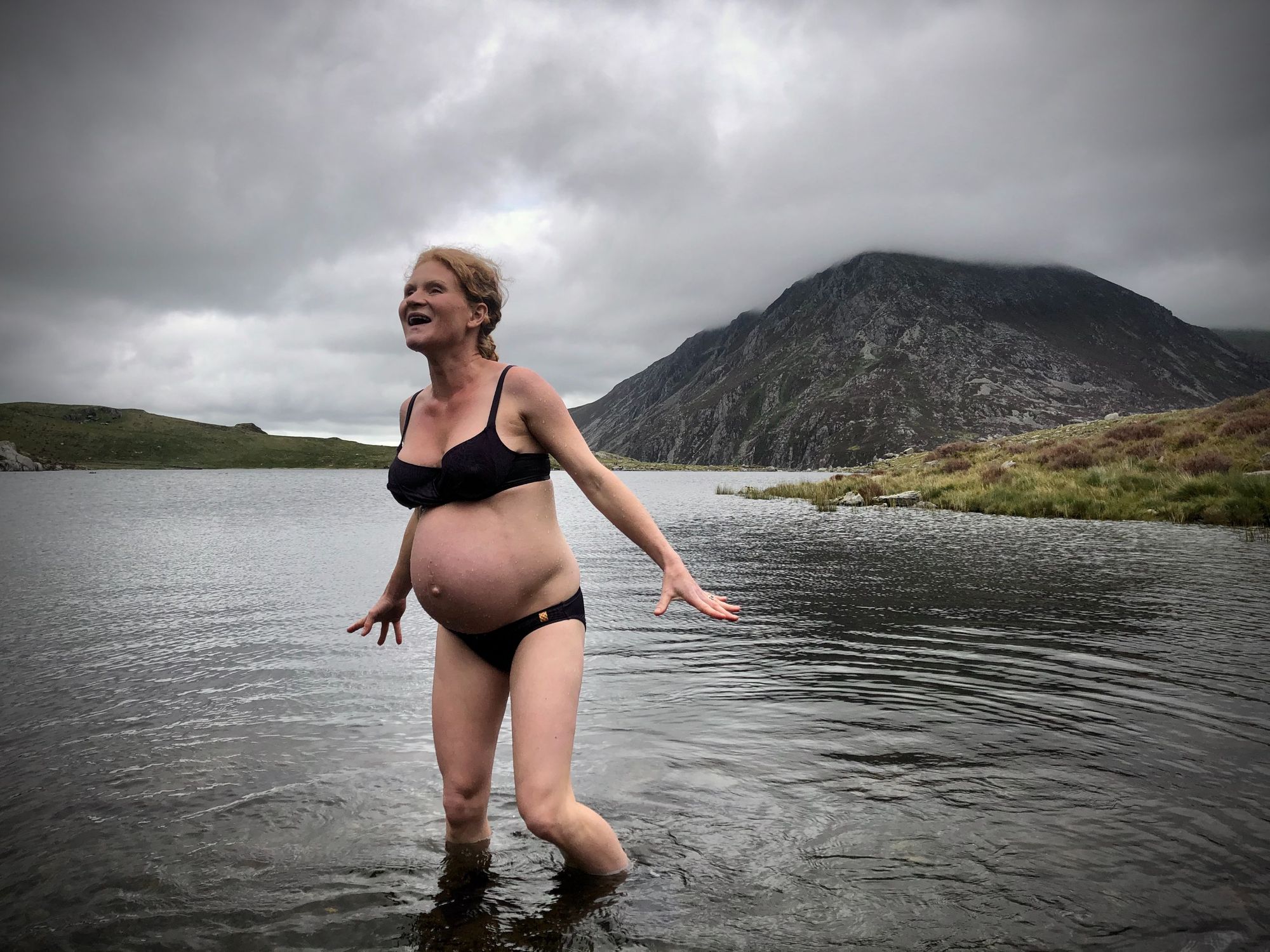
“For me, this particular phase of life has been about realising I'm not going to be the same that I was 10 years ago. I'm learning just to chill about it a little bit and I know I have to work much harder at my fitness these days because my motivation to train is very different to how it was. I found that really challenging because rather than thinking I’ll just go out for a run or a ride, I've got to suck it up and get on with it and just go and do it because I know it's going to do me good.”
You don’t have to stick to anyone else's prescription of what you're now capable of
Jo is also renegotiating her relationship with adventure. No longer does she cram her time full with international expeditions. She’s spending more time at home, and adventuring more within the UK.
“Any adventures I do take on I’ll be able to train properly for and go and do it because I want to do it, rather than because it's just a job,” she says.
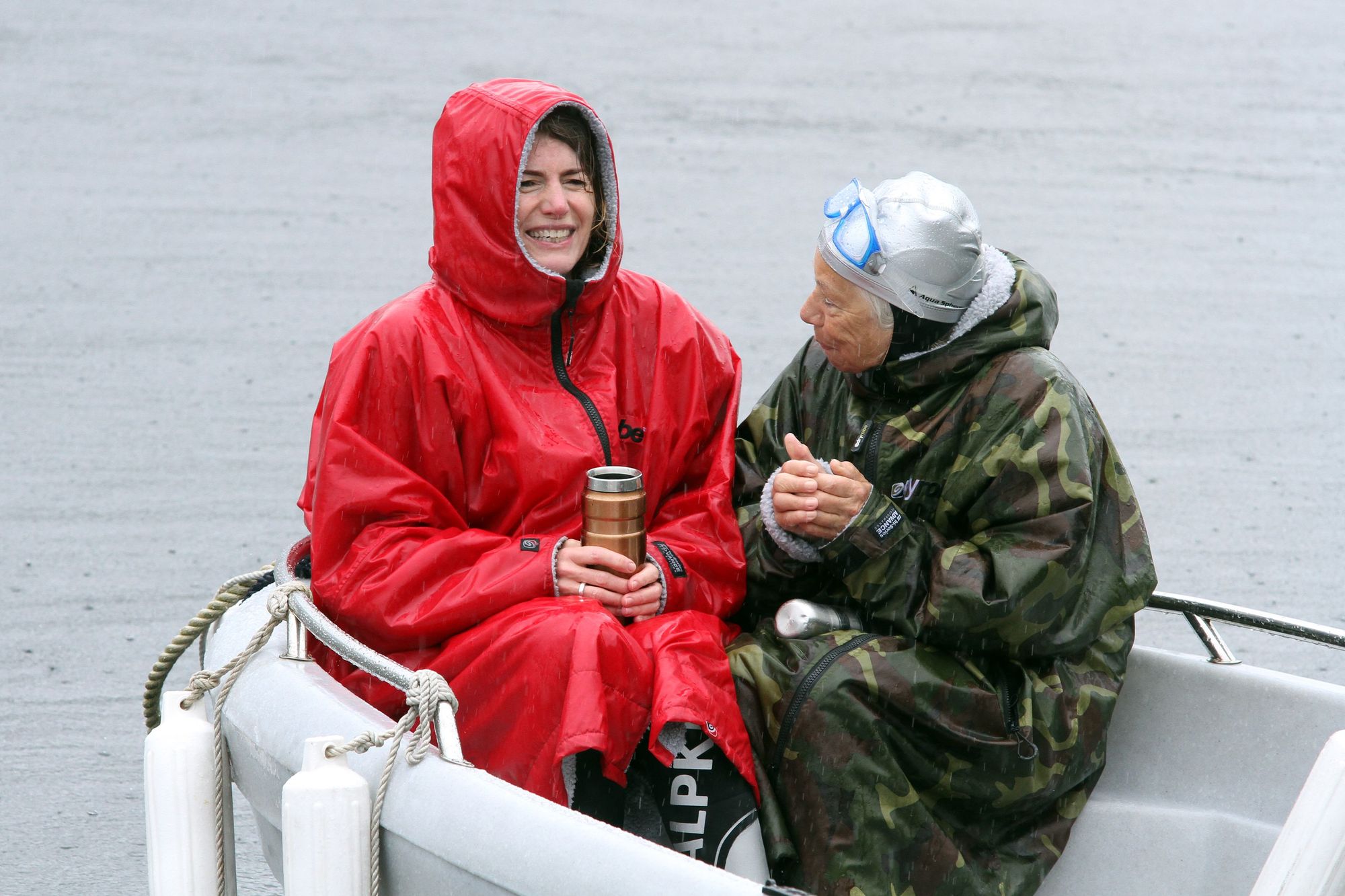
Kate dislikes the way that cold water swimming is spoken about as a ‘cure’ for everything from mental health problems to menopause. She believe this frames it as another thing to consume for one's own benefit, setting us apart from the experience and nature and making it less immersive. She does, however, believe swimming offers a lot to women in their 40s and 50s.
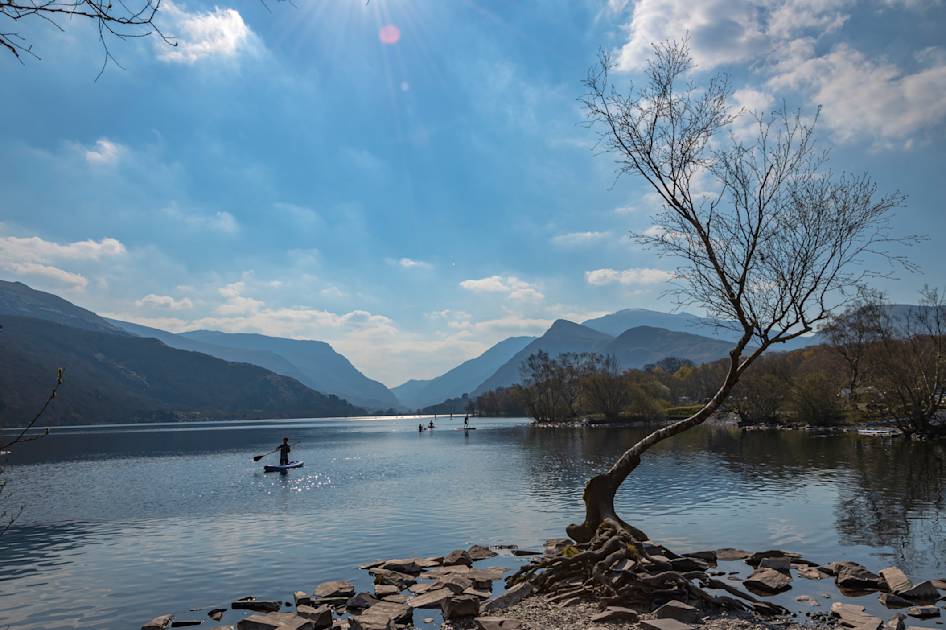
“Swimming is something that a lot of women feel very comfortable doing when other sports have gone by the wayside,” she says. "I think if you take it outside, it offers you freedom. That's quite a driver for people, leaving the phone and the dependents and all the other problems on the bank and physically being cut off by the water. It's a tremendous release.
“When you're swimming you could be any age, and I think that's one of the reasons why I enjoy it. That youthful optimism goes at some point, right? You assess things differently when you're over the halfway mark. But when you're swimming feel equally effervescent or happy and free as you did when you were a child.
“So what are you going to do with your one precious life? There’s few better things than going on adventures or going swimming.”
If you'd like to swim outdoors more, become a member of the Outdoor Swimming Society or grab a copy of Kate's book, The Outdoor Swimmer's Handbook. And if you're experiencing symptoms you think could be menopause related, you can book a virtual consultation at Dr Potter's Menopause Care Clinic.
Inspired? People of all different ages enjoy our small group adventures - why not join us on an epic weekend or one of our wild swimming trips?


